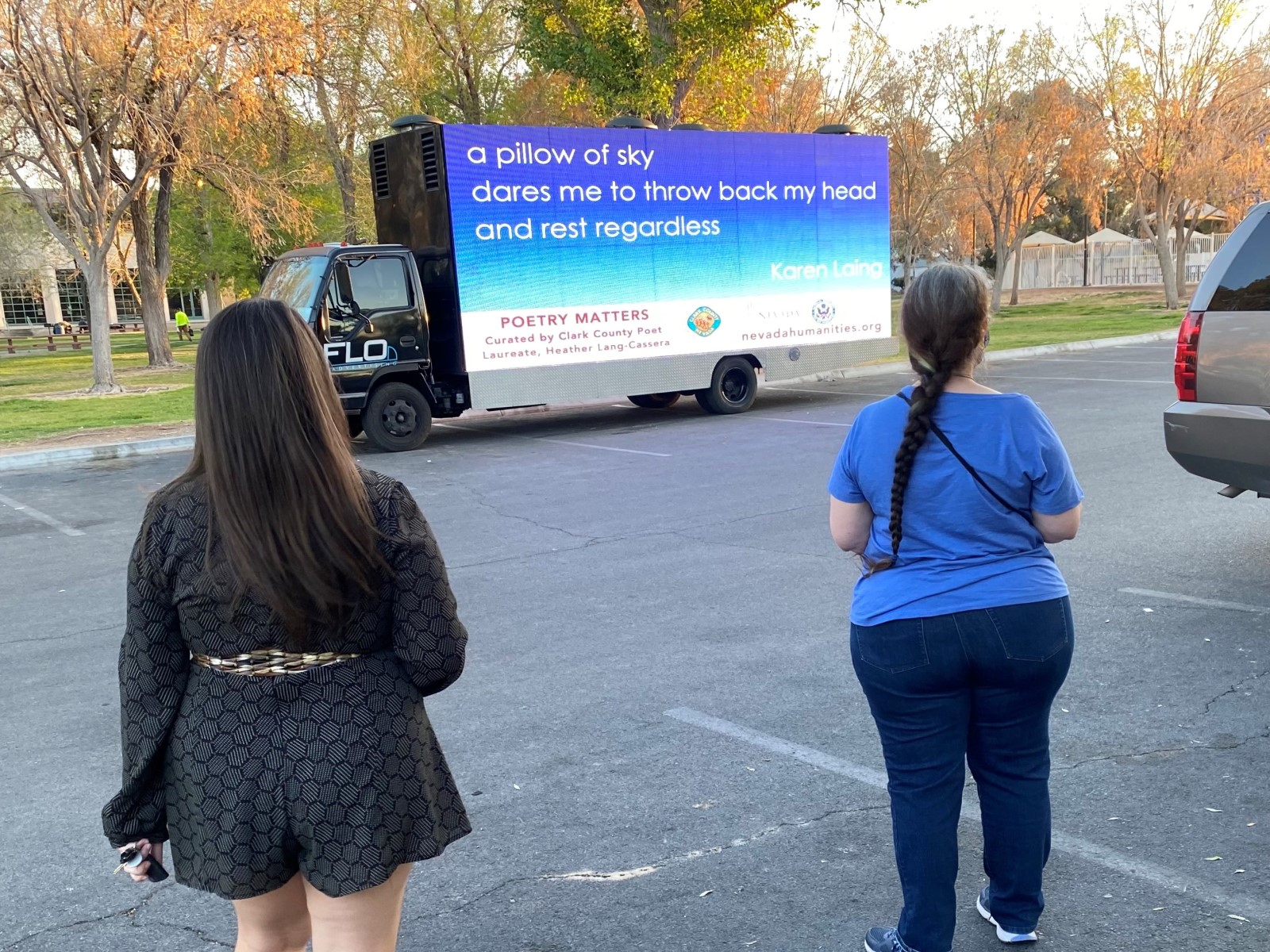Poet laureate program helped residents break through Zoom fatigue
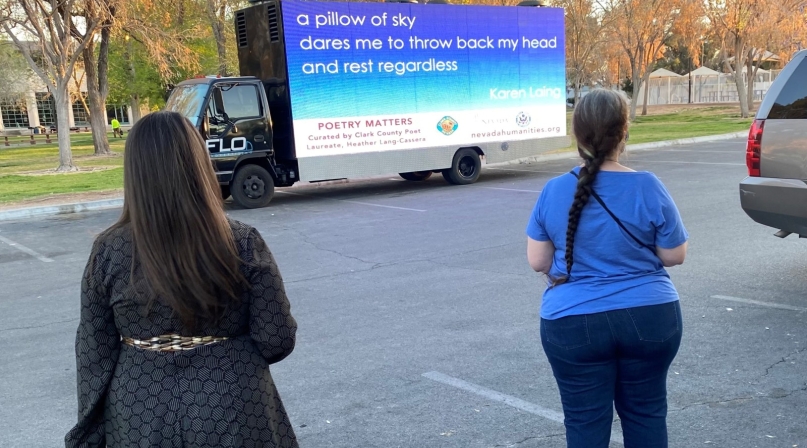
Key Takeaways
When the COVID-19 pandemic forced in-person events to go remote, it added a challenge to the story Heather Lang-Cassera was trying to tell.
As Clark County, Nev.’s poet laureate from May 2019-May 2021, she was working to bring more cultural events to rural parts of the county, a far cry from the Las Vegas Strip.
“When I first moved here, every search seemed to direct me there,” she said, “It was harder to find local cultural happenings that were unrelated to whether or not they existed.”
During the pandemic, even “The Strip” wasn’t an option anymore, nor were the readings and workshops Lang-Cassera planned for community centers all over the county. But she still saw opportunities, and perhaps an even greater need.
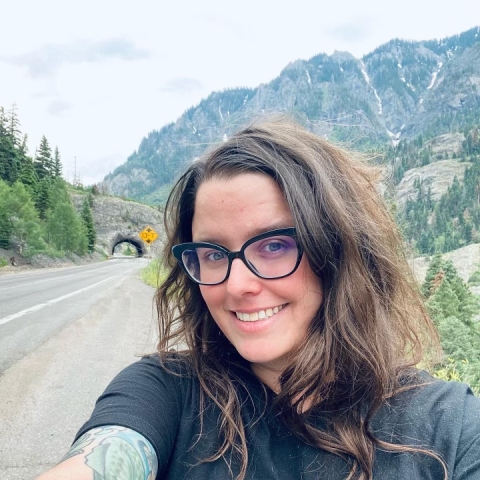
The poet laureate program is subsidized by the Clark County Public Arts Fund and managed by the Winchester Dondero Cultural Center. Dozens of counties nationwide offer poet laureate programs to deputize artistic ambassadors who represent their counties regionally and nationally and offer artistic outreach at home. In Clark County, Lang-Cassera had neighbors whose livelihoods were at stake, particularly in the hard-hit tourism-related sectors. But she also saw more than that.
“What I witnessed was that a lot of folks had things seemingly unrelated to the pandemic sort of come to the surface, something they could explore and work through when they had that extra time, space and isolation.”
Like many, she continued her programming remotely, which allowed more people to participate, including poets and poetry enthusiasts from other regions of the state, though she found more than a few people suffering from “Zoom fatigue.”
But in the craft of poetry, she viewed an antidote.
For some, it was participating in a collaborative poem, with different contributors taking turns, stanza by stanza, which Nevada Humanities published.
“I got a lot of positive feedback about how that helped people feel connected in a genuine way,” Lang-Cassera said. “And it demonstrated that there were other meaningful ways to communicate besides looking into a camera.
“Art helps us experience one another and experience the world in a way that we don’t necessarily need to be there in the moment,” she noted, “because it evokes images and memories — we are physiologically affected by poetry. We can stay healthy and wholly connected human beings in ways that transcend Zoom and text messages and phone calls.”
She also took poetry out into the general public, using video trucks to display poems alongside photography in Clark County parks and along The Strip.
“It was fun, meaningful and outdoors,” she said. “That seemed like it really brought the community together.”
Lang-Cassera, who teaches at Nevada State College, saw a renewed general interest in poetry after the presidential inauguration made poet Amanda Gorman a celebrity. Students of all ages in Lang-Cassera’s classes found themselves interested in writing again after abandoning poetry in middle school.
“Poetry really does still have a place,” she said. “It opens up discussions, makes people feel empowered.
“It’s this amazing vessel when it comes to art, because you can spend your entire life working to master it. Unlike some physical art forms that you need equipment to do, literally anyone can write a poem and get started. If you are sitting down with someone who is passionate about it and interested in teaching you something about it, you can have a poetry prompt and walk away and have a poem written in 30 minutes.”
And it all adds up to a richer communication, both between poets and readers and for the writer to express themselves and what is happening in their community.
“It gives folks a vehicle for exploring their feelings and understanding how to tell their story,” she said, adding that those expressions offer a chance for deeper interpersonal communication.
“So many issues are very polarized, and people don’t even know how to start talking about them openly,” Lang-Cassera said. “Getting people into a different vehicle for discussion can really open us up for honest authentic conversations about things and that is something that really needs to happen in our community.”
One role of the poet laureate is to write about events that affect Clark County, exploring the community experience, whether it’s matters of trauma or celebration.
Lang-Cassera has been working on a book dedicated to residents affected by the Oct. 1, 2017 mass shooting in Las Vegas.
“I feel like it’s tough because folks have still been feeling the effects of the October 1 tragedy,” she said. “I try to take time to reflect before I write about it.”
She absolutely sees the art form as something anybody can immerse themselves in.
“It brings people to spaces, physically, emotionally or cerebrally, that they don’t often go to,” she said.
Attachments
Related News
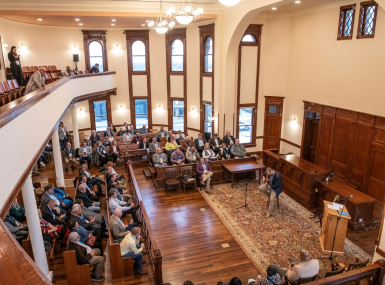
Wise County courthouse renovation turns back clock 130 years
A multi-year project restored the historic courthouse to its original design after mid-century compromises, making the county's centerpiece more inviting and evocative of the community's aspirations.
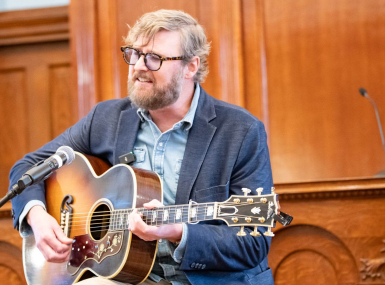
Emotion and perspective help frame stories
A songwriter and a nonfiction author shared their techniques for telling memorable stories at the County Storyteller Symposium in early December.
Missouri association building to make horror film debut
The Missouri Association of Counties found a new building to house its offices, complete with meeting space and an embalming room, thanks to its past as a funeral home.

